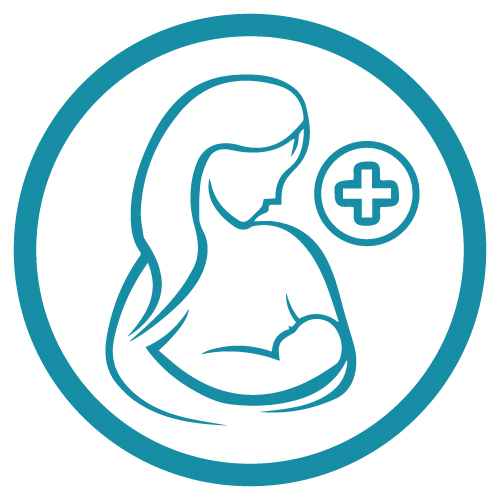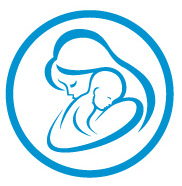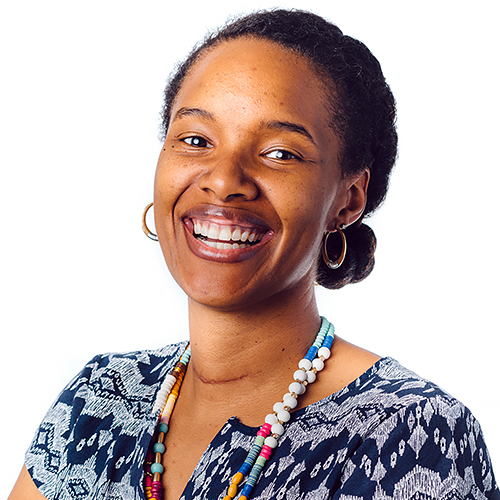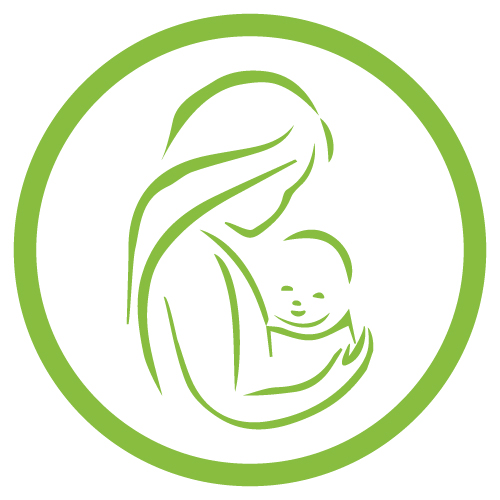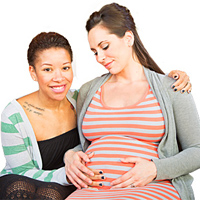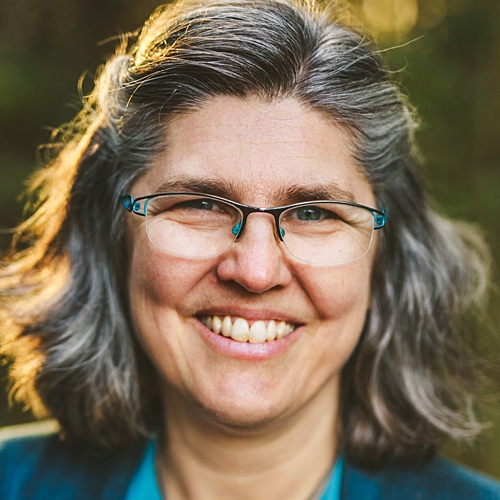
The Compensatory Mechanics of Suck for Babies with Oral Tethering: How to Identify and Treat after Revision

Ellen Chetwynd PhD MPH RN BSN IBCLC is a breastfeeding researcher, lactation consultant, and advocate. Her goal is to provide excellent care that is innovative and effective. Her clinical care is equally informed by, and leads to, her research and collaborations with fellow scientists. She is an advocate of breastfeeding families of all shapes, as well as the providers who care for them. Through her work as Chair of the North Carolina Breastfeeding Coalition she has contributed to the statewide work to provide Medicaid reimbursement in North Carolina, successfully funded a project to support clinics seeking to become breastfeeding friendly and increase access to equitable support of breastfeeding, implemented a statewide breastfeeding summit, and created an interactive statewide resource listing for breastfeeding resources at the county level. In her lactation consulting work, she is sought out by parents and clinicians for her work with difficult cases of pain and dysfunctional infant suck. She is a prolific writer, and her research and publications cover topics including breastfeeding and metabolic health, reimbursement for lactation consulting, LGBTQI+ families, and breastfeeding research methodology. She recently created and co-taught a full day workshop on breastfeeding research methods, and gets fired up about the numbers behind what we do to support families. At Next Level Lactation LLC, she and her partners provide advanced lactation educational opportunities.
Babies with oral tethering don't have access to the full range of motion needed to create negative pressure at the back of their mouths so they can draw milk out of the effectively and painlessly. We can all assess the latch, but what is happening with the tongue, the breast and nipple, and the other muscles involved in the mechanics of suck after the baby’s mouth closes over the breast? How do we identify compensatory mechanisms convince babies to change them with the broader mobility they have after frenotomy? This presentation will teach participants how to visualize/experience normal infant suck. Compensatory suck mechanisms are the techniques that infants use during feeding when they don’t have access to adequate movement in their tongue and floor of their mouth. Infants are creative, and the strategies they develop are varied. Participants will learn how to identify and categorize compensatory mechanisms and use clinical skills to differentiate and assess muscle tension related to overuse and suck mechanics at the breast. A unique set of clinical techniques that can be used by the lactation consultant and taught to the mother addressing each category of compensatory suck mechanics will be introduced and illustrated through case studies.
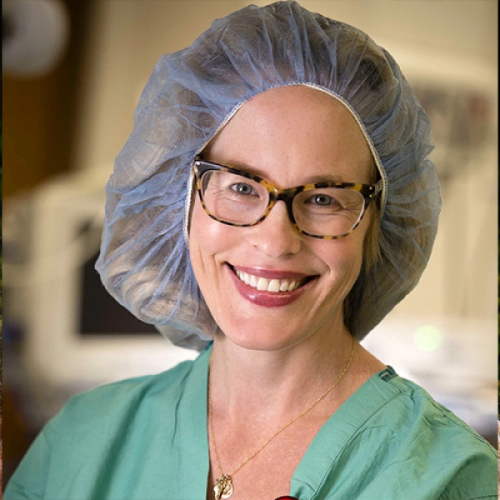

Katrina B. Mitchell, MD is a board-certified general surgeon, fellowship-trained breast surgical oncologist, and international board certified lactation consultant (IBCLC) whose practice includes the care and surgery of women with breast cancer and benign breast disease. She also treats maternal complications of lactation, and has a special interest in pregnancy and postpartum breast cancer. She resides in Santa Barbara, California and practices at the Ridley Tree Cancer Center at Sansum Clinic. She enjoys reading, traveling, and spending time with her son at the beach. More information about her clinical and educational interests is available at katrinamitchell.org.
This lecture reviews nipple and breast pain during pregnancy and both the early and late postpartum periods. It describes the anatomy and physiology of the breast and nipple areolar complex, and explores why pain during pregnancy and lactation is so common. Specific topics include the relationship between engorgement and infant latch; pump and other nipple trauma; hypo- and hyperlactation and how pain presents in these populations; vasospasm; dermatitis; nipple blebs; and, mastitis and plugging. The lecture also covers infant considerations and defines the lack of evidence for fungal infections as a significant contributor to pain. It delineates identification and treatment of functional pain and overlap of perinatal mood and anxiety disorders with pain.

The Connected Baby: How Understanding Infant Brain Development Changes Our View of Humanity

Dr. Suzanne Zeedyk is a research scientist fascinated by babies’ innate capacity to connect. Since 1993, she has been based at the University of Dundee (Scotland), within the School of Psychology, where she now holds an Honorary Post. In 2011, she stepped away from a full-time academic post in order to establish an independent training enterprise, the aim of which is to help the public understand what science now understands about the importance of emotional connection for human health and happiness. She works internationally with organisations keen to think more deeply about fostering connection, compassion and resilience. In the last 5 years, more than 40,000 people have attended her speaking events. Suzanne’s core aspiration is to strengthen awareness of the decisions we take about caring for our children — because those choices are integrally connected to our vision for the kind of society we wish to build. More information is available on www.suzannezeedyk.com.
Human infants are born already connected to other people. Over the past 30 years, science has gained a much better understanding of the sophistication of babies’ innate social capacities, including the way that infants’ early emotional experiences drive brain development. Many practitioners remain unaware of these discoveries, despite the implications they hold for delivering high-quality care. This presentation will review these discoveries and reflect on what they tell us about our own humanity. Emotionally healthy individuals and emotionally healthy societies rely on empathy, resilience and trust. These qualities are precisely the ones being wired into the brain in the earliest years of life.
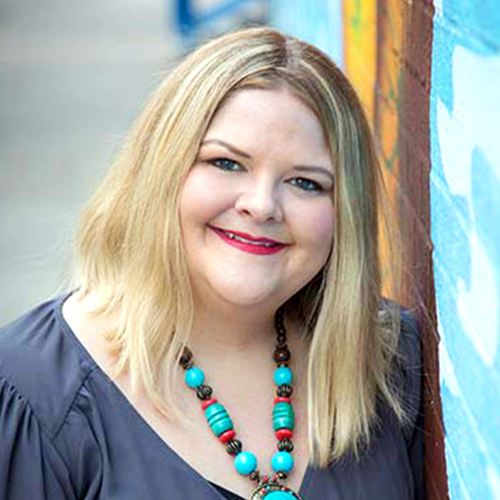
The Critical Need for Inclusive Language and Inclusive Care for the LGBTQ+ Chestfeeding/Bodyfeeding Community

Stephanie Wagner, "Steph", is a Registered Nurse of 20 years, her first 13 years working Labor & Delivery in various hospitals in Virginia, California, and New York, working as a Travel Nurse for many years. Steph graduated from James Madison University in Virginia in 2001 with her BSN. She became a Certified Lactation Educator in 2012 and an International Board-Certified Lactation Consultant in 2014. After working in the hospital setting for 18 years, she now works solely as a Lactation Consultant in Private Practice. Her Private Practice, EverLatching Love, started in 2015 in NYC. EverLatching Love provides Breastfeeding/Chestfeeding/Bodyfeeding support and education by way of home visits and virtual consultations. Steph is the current Treasurer of the New York Lactation Consultant Association (NYLCA) and a member of the United States Lactation Consultant Association (USLCA) as well as the International Lactation Consultant Association (ILCA). She has been featured in Romper.com, nymag.com, the Strategist, TLC the TV network, and other media outlets such as the Breastfeeding Outside the Box podcast series. She teaches part time for Evergreen Perinatal Education, proudly educating new lactation professionals entering our field. She speaks at conferences and to groups across the Country on best practice when working with LGBTQ+ families who may use the language and action of Chestfeeding or Bodyfeeding their babies. Making sure healthcare is always aware of Diversity, Equity, and Inclusion (DEI) for all persons is a pilar of Steph’s work. Steph is a proud Certified OutCare Healthcare Professional as of March 2020 and is very proud to be featured on OutCare Health’s OutList of Medical Professionals. She was privileged to speak at the New York Coming Out Conference, the first ever International Transgender Conference in NYC, in October 2019. The conference had a big emphasis on healthcare and Steph presented on Breastfeeding/Chestfeeding/Bodyfeeding to the Transgender and Non-Binary community in attendance. She is constantly learning about Queer culture and advances in human lactation, and she works hard to find the best ways to intersect them for inclusive care.
This presentation will provide the learner with further knowledge about the current needs of the LGBTQ+ community in the context of healthcare, and particularly as it pertains to breastfeeding/chestfeeding/bodyfeeding for all families who desire to feed their infant/child in this way. Participants of this education will learn about some history of the LGBTQ+ community within healthcare, appropriate inclusive language and its critical relevance within the LGBTQ+ community, and will learn about tools and resources available to feel more confident when taking care of a family or a parent who identifies as a LGBTQ+ human.
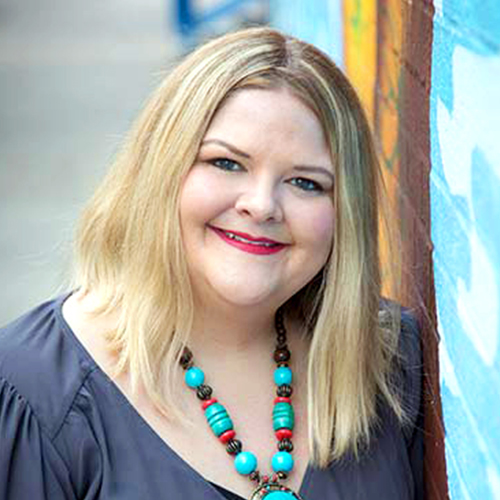
View Details / Enroll
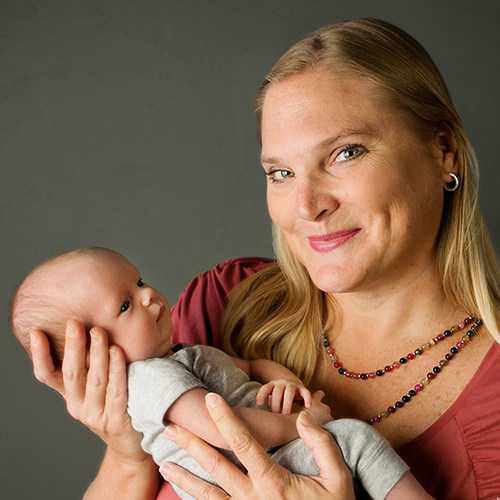
The Crying Curve and the Impact on Postpartum and Breastfeeding

A love for babies fueled Kimberly's 20+ year career serving families in the postpartum time frame. With a passion for nurturing new parents, she trains doulas and educators with CAPPA to support and educate for a strong beginning of bonding and connection. She loves teaching expectant families to have a smooth transition to new baby life through the Providence Healthcare System in Portland, OR. She began as a postpartum doula, then quickly added breastfeeding and new parent classes to help parents from the very beginning, and then became an IBCLC to meet their bigger challenges. She owns ABC Doula & Newborn Care in Portland, OR, is the mother of 2 grown kids, and resides in Phoenix near her parents. Like many other baby whisperers, Kimberly has honed skills for listening and responding to babies that parents can quickly learn to understand and interpret their tiny humans. When she sees parents struggling, and especially with the most fussy of babies, her heart hopes that all parents could be given the tools to compassionately support their little ones, and learn how to meet their needs, which creates more confidence in themselves in their new roles as well.
Topic: Understanding Infant Crying - [View Abstract]
The Crying Curve is an evidence-based pattern of crying that begins at about 42 weeks of gestation (2 weeks of extrauterine life), peaks at 6-8 weeks of age, and sharply declines by 12-15 weeks. As many as 15 different studies have concluded that this pattern is common across infants of all cultures, gestational ages (based on a 40-week gestation), and parenting styles—and the applications are many in the early parenting world. How can parents use this pattern to help them navigate breastfeeding? How can they gather their support people, family or village to maximize positive relationships and get the support they crave? How can they utilize it to help assess their newborn and understand what is needed for their specific situation? How much crying is too much crying? Lactation consultants, postpartum doulas, and other postpartum professionals who possess this information are well positioned to help to educate parents on how to best approach their postpartum recovery period, as well as navigate the ups and downs of breastfeeding and early newborn sleep. This session will aim to explain and apply the Crying Curve in multiple ways to support and guide the newborn family.
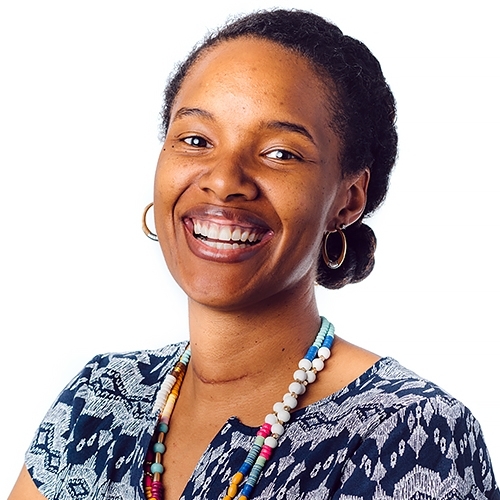

Nikki Hunter Greenaway is a board-certified family nurse practitioner and internationally board-certified lactation consultant in New Orleans, Louisiana. In 2011, she founded Nurse Nikki Family & Maternity Services, a health consulting firm where she educates and counsels women, families, schools and businesses about pregnancy, birth, postpartum, breastfeeding, and new baby care. October 2018 she opened Bloom Maternal Health, a women’s health clinic that provides prenatal counseling and postpartum recovery care. Nurse Nikki is the co-founder of Louisiana’s first free-standing infant feeding clinic, the New Orleans Breastfeeding Center. She also co-created Café au Lait Breastfeeding Circle for Families of Color and Nikki & Nikki Lactation Career Consultants two important resources needed to improve breastfeeding outcomes specifically in the Black community. Nikki is a wife and mother of 3 mini breastfeeding activists.
Lactation consultations delve into perfecting a latch, maximizing milk supply and even recovering from giving birth. Very few visits discuss how breastfeeding can affect intimacy. The research on breastfeeding and intimacy is scarce and the assessment tools and evidence-based solutions are almost nonexistent. Perinatal providers often don’t recognize the relevance or have time to troubleshoot the inquiries. Lactation specialists understand that the situation exists but may not know how to approach the line of questioning or how to provide solutions. This webinar will illustrate the relationship between lactation-specific hormones and sex hormones. It will present the mental and physical struggles that families face when tackling the topic of returning to intimacy when breastfeeding. Providers and lactation consultants will receive recommendations on how to approach, assess and assist in resolving clients’ perceptions and concerns surrounding breastfeeding and intimacy. Discussion will offer web resources and how to add the topic into community resources.

View Details / Enroll

The Effects of Stress On The Mother-Baby Dyad

Elissa is a passionate osteopath, business owner and mentor.
Elissa has worked as an Osteopath in private practice in Melbourne since graduating in 1998.
She started her own multidisciplinary clinic in 2002, combining osteopathy with, massage, naturopathy, kinesiology and counselling. In 2015 Elissa merged her business with a local podiatrist and started The Balwyn Health Hub.
She is well known for her treatment of children and pregnant women although her patient base also includes a strong focus for; the family unit, the elderly, performers, athletes and the chronically ill. Her special interest in osteopathic diagnostic reasoning often helps patients understand why chronic dysfunctions are not healing.
Elissa's passion for working with pregnant women, babies and children allows close professional relationships with lactation consultants, midwives and doulas which has led to her guest lecturing at a number of multidisciplinary conferences.
The stresses faced by each new mother will reflect her unique experience of conception, pregnancy and birth and these stresses can significantly influence the mother-baby bond. Even the most well researched birth plan can be subject to variations and complications that will inevitably put additional stress on the mother. Difficulty breastfeeding is often one of the first signs of stress on the mother-baby unit; it’s success or failure can drastically influence the early bonds made between the dyad. The neuroendocrine system has many ways of responding to these stresses and knowledgable manual therapists have an opportunity to support both the mother and baby towards optimal physiology.
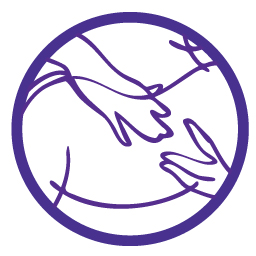
View Details / Enroll
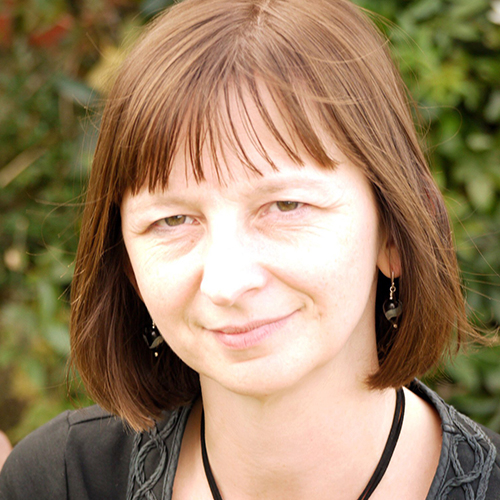
The Elephant In The Room - Bleeding Post Tongue-Tie Division

Sarah is a Registered General Nurse, Health Visitor, International Board Certified Lactation Consultant and Tongue-tie Practitioner with a busy private practice based in Cambridgeshire, UK. Sarah is a founder member and former Chair of The Association of Tongue-tie Practitioners and has written a book for parents and professionals, ‘Why Tongue-tie Matters’. Sarah lectures nationally and internationally on infant feeding and tongue-tie.
Topic: COVID-19 and Implications for Tongue-Tie Division in Infants - [View Abstract]
Topic: Is This a Tongue-Tie: How Do We Decide? - [View Abstract]
Topic: The Elephant In The Room - Bleeding Post Tongue-Tie Division - [View Abstract]
This presentation explores professional and lay perspectives on bleeding post tongue-tie division. It will examine what constitutes abnormal bleeding and why this may occur. Risk assessment and reduction will be discussed. Management strategies that have been found to be effective, along with the development of guidelines on bleeding by the Association of Tongue-tie Practitioners will be described.
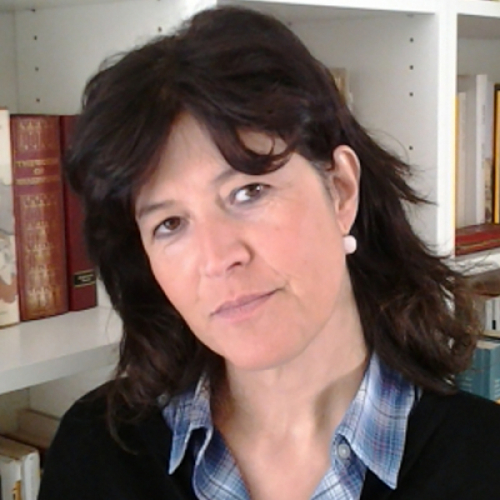

Maria Caterina Cattaneo is a psychotherapist with a psychodynamic orientation and EMDR practitioner. In the 90s she accumulated a large experience in the field of the clinical psychology of the developmental age, both in public hospitals (Child and Adolescent Neuropsychiatry department in Lecco, and a collaboration with the department of Neonatal Pathology in Monza), and in the Scientific Institute Eugenio Medea in Bosisio Parini, where she has also done research on depression in children and adolescents, giving an important contribution to the Italian version of the Achenbach CBCL (4-18) . For several years she worked on the protection of minors (at the department of Social Services of the city of Monza) , conducting diagnosis and microanalysis of highly conflictual couples, and support groups for parents. Besides her free practice, since 2006 she has been coordinating the project on “When birth becomes crisis”, a collaborative project between the departments of Neonatology and Neonatal Pathology of the Maternity Hospital Mangiagalli in Milan and the Consultorio Familiare “Genitori Oggi”and , since the last year, in the Humanitas Hospital PioX. The clinical activity consists of psychological work in the maternity wards, inside the Hospital, and, when needed, therapeutic intervention with mothers or fathers , couples or mother - infant bonding at the Perinatal Psychology Unit, founded in 2006 at the same hospital. Since 2008 she has started the research activity of the Unit on the prevention of post-partum depression; some results of this research have been published in international journals, and have been presented at several AISMI conferences, while others are in the process of publication. In the last years she has started, with her collaborators, a new research project based on the use of EMDR in perinatal psychology, implying the preparation of two new protocols on delivery trauma and problems concerning breastfeeding.
After childbirth, between 3 and 9% of women develop trauma-related symptoms characterized by a constant state of alert as if the danger was still ongoing. This can include intrusive memories / intrusive images, sleeping disorders and signs of dissociation. Puerperal women may experience a sense of inadequacy and / or impotence. If untreated, these peri-traumatic issues can affect the mental and physical health of the mother. The follow-ups of a birth trauma can also lead to significant impairment in the construction of a secure prìmary relationship between the mother and the baby {the basis of the subsequent attachment bond). A secure attachment, on the other hand, is a protective factor against possible psychological and psychiatric problems in childhood, adolescence and adulthood. This presentation will will provide an introduction to the use of Eye Movement Desensitization and Reprocessing (EMDR) as a treatment for birth trauma and how it may be clinically applied in the maternity ward.

The Ethics & Realities of Forced Cesarean Surgery

Jen Kamel is a VBAC strategist, national speaker, and founder of VBAC Facts®. VBAC Facts was born out of her own frustration as a cesarean parent attempting to understand the medical literature and political barriers surrounding VBAC. Her mission is to increase VBAC access through educational programs, legislative action, and amplifying the consumer voice. She envisions a time when every pregnant person seeking VBAC has access to unbiased information, respectful providers, and community support so they can plan the joyful birth of their choosing in the setting they desire. She travels the country presenting her signature program, “The Truth About VBAC” and speaking at various regional and national conferences, including Human Rights in Childbirth, DONA International, and the Indiana Midwives Association. She has testified multiple times in front of the California Medical Board on the importance of VBAC access and is a board member for the California Association of Midwives.
Are women forced into cesarean surgery? How is this possible? When does it happen? Why does it occur? And what do forced/coerced cesareans really look like? This session will explore the extreme disconnect between medical evidence, national guidelines, ethical responsibilities and the current maternity care system. We will focus on the role of hospital “VBAC bans” which restrict access to vaginal birth after cesarean and mandate repeat cesarean as well as the public health fallout of such policies. We will review how forced cesareans can occur in the face of national guidelines that denounce them while professional ethics simultaneously affirm and honor the autonomy of the pregnant person. Finally we will close with how we can turn the tide, create change, and improve the care our clients and children will ultimately receive.



